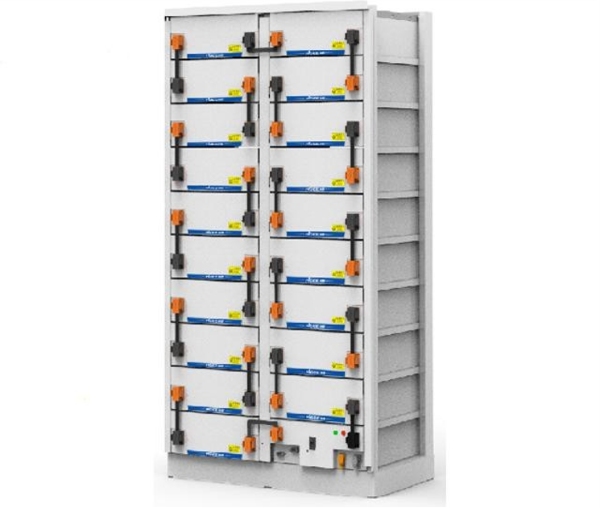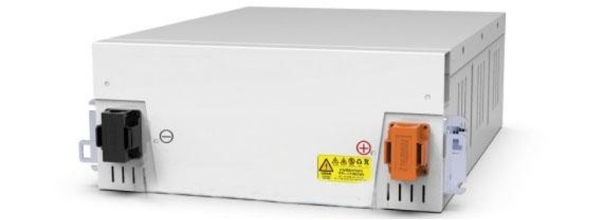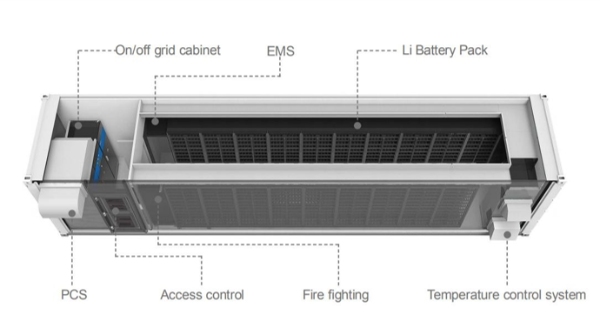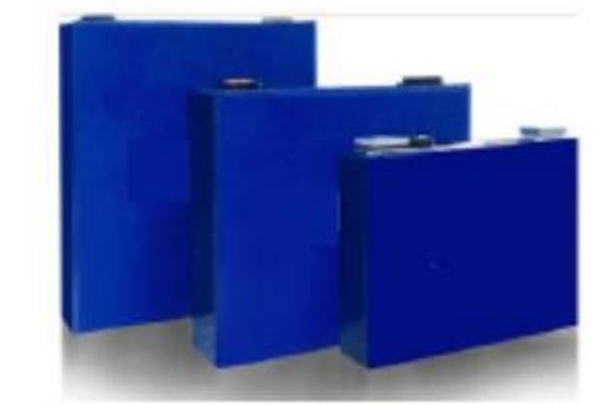

Lithium batteries are a key component of many of our modern day devices, such as our cell phones and laptops.
 Free local delivery
Free local delivery 25-year power supply warranty
25-year power supply warranty Lifetime Customer Support
Lifetime Customer Support
When it comes to lithium battery cells, there are certain certifications and standards that must be met in order to ensure safety and quality. Some of the most important certification bodies for lithium batteries include UL, CE, IEC, and UN38.3.
UL is a world-renowned safety certification body that tests and certifies products for safety. CE is a European Union certification that shows compliance with health, safety, and environmental protection standards. IEC is an international standards organization that develops standards for all kinds of electrical products, including lithium batteries. UN38.3 is a United Nations transportation standard that covers the shipment of lithium batteries by air.
In order to meet these various certifications and standards, lithium battery cells must go through rigorous testing to ensure they are safe and reliable. This testing includes things like thermal stability testing, overcharge/discharge testing, vibration testing, shock testing, and more. By meeting all of these standards, you can be sure that your lithium battery cell is safe to use and will perform as expected.
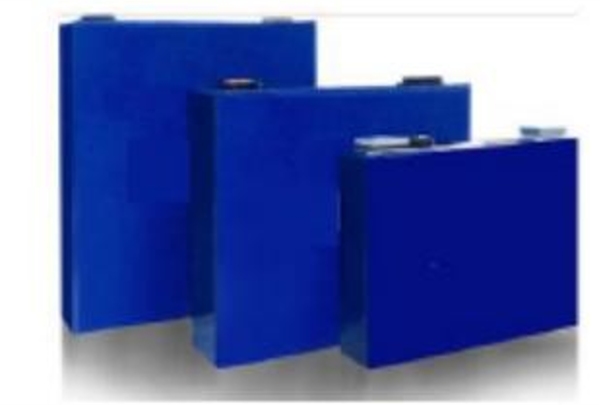
Name | Technical parameter |
model | HJLFP48173170E-120Ah |
nominal voltage | 3.2V |
nominal capacity | 120Ah |
Operating voltage range | 2.5V~3.65V (T>0℃) |
2.0V~3.65V (T ≤0℃) | |
operating temperature range | Charging: 0℃ ~50℃ |
Discharge: -20℃ ~55℃ | |
Storage: -30℃ ~45℃ | |
Standard charge-discharge rate | 0.5C |
Continuous charge and discharge rate | 1C |
Mass energy density | ≥140Wh/kg |
cycle life | 5,000 times / 1C@25℃ 100% DOD |
Size (thick * width * height) | 48*173*170mm |
weight | ≤2.86kg |
application scenarios | Electric energy storage |
Lithium battery cells have a very flat IV curve, meaning that the voltage stays relatively constant as the cell is discharged. This makes them ideal for applications where a consistent voltage is required, such as in smartphones and laptops. The main downside of lithium battery cells is their high cost, which is due to the expensive materials required to make them.
Lithium battery cells have a number of advantages over other types of batteries in terms of electrical performance. They have a high energy density, which means that they can store more energy per unit volume than other types of batteries. They also have a high power density, which means that they can deliver more power per unit volume than other types of batteries. Finally, lithium battery cells have a low self-discharge rate, which means that they will retain their charge for longer periods of time than other types of batteries.
Lithium battery cells have many performance parameters that dictate how the cell will behave electrically. The most important of these are the open circuit voltage (OCV), the nominal voltage, the cutoff voltage, and the discharge efficiency.
The OCV is a measure of the potential difference between the electrodes of a lithium battery cell when no current is flowing. It is typically around 3.6 volts for a Li-ion cell. The nominal voltage is the average voltage that the cell can produce during discharge. It is typically around 3.7 volts for a Li-ion cell. The cutoff voltage is the minimum voltage that the cell can be discharged to before damage begins to occur. It is typically around 2.5 volts for a Li-ion cell. The discharge efficiency is a measure of how much energy from the cell actually gets used by the load, versus being lost as heat or other forms of waste. A good discharge efficiency is around 80%.
Nominal test conditions for IV parameters are standard test conditions (irradiance 10.0 Wm7, AM 15, cell temperature 25'°C) all measurements are guaranteed at laminate leads.NOCT measures wind speed at 800 W/m², 20C ambient temperature and 1 m/s.Specifications are subject to change without notice.
JS Solar reserves the right of final interpretation and revision of this data sheet.
PRIVACY POLICY
Last Updated: June,30,2023
At jssolar.com we consider the privacy of our visitors, and the security of their personal information, to be extremely important. This Privacy Policy document describes, in detail, the types of personal information we collect and record at, and how we use this information.
LOG FILES
Like many other Web sites, jssolar.com makes use of log files. These files merely log visitors to the site - usually a standard procedure for hosting companies, and a part of hosting services's analytics. The information inside the log files includes internet protocol (IP) addresses, browser type, Internet Service Provider (ISP), date/time stamp, referring/exit pages, and in some cases, the number of clicks. This information is used to analyze trends, administer the site, track a user's movement around the site, and gather demographic information. IP addresses, and other such information, are not linked to any information that is personally identifiable.
COLLECTING INFORMATION
WHAT INFORMATION WE COLLECT:
What we collect depends largely on the interaction that takes place between you and jssolar. most of which can be categorized under the following:
Using Jssolar's Service. When you use any jssolar Service, we store all the content you provide, including but not limited to accounts created for team members, files, pictures, project information, and any other information that you provide to the services you use.
For any jssolar Service, we also collect data about the usage of the software. This may include, but is not limited to, numbers of users, flows, broadcasts, etc.
Types of Personal Information:
(i) Users: identification, publicly available social media profile information, e-mail, IT information (IP addresses, usage data, cookies data, browser data); financial information (credit card details, account details, payment information).
(ii) Subscribers: identification and publicly available social media profile information (name, date of birth, gender, geographic location), chat history, navigational data (including chatbot usage information), application integration data, and other electronic data submitted, stored, sent, or received by end users and other personal information, the extent of which is determined and controlled by the Customer in its sole discretion.
Purchasing jssolar website subscription. When you sign up for jssolar website Subscription, we collect information to process your payment and create your customer account. This information includes name, email address, physical address, telephone number, and company name where applicable. We retain the last four digits of your credit card to allow you to identify the card used for future purchases. We use a third-party service provider to process your credit card transactions. These third parties are governed by their own agreements.
User-generated content. Our products and services often give you the option to provide feedback, such as suggestions, compliments or problems encountered. We invite you to provide such feedback as well as to participate with comments on our blog and community page. If you choose to post a comment, your user name, city, and any other information that you choose to post will be visible to the public. We are not responsible for the privacy of any information that you choose to post to our website, including in our blogs, or for the accuracy of any information contained in those postings. Any information that you disclose becomes public information. We cannot prevent such information from being used in a manner that may violate this Privacy Policy, the law, or your personal privacy.
Data collected for and by our Users. As you use our Services, you may import into our system, the personal information you have collected from your Subscribers or other individuals. We have no direct relationship with your Subscribers or any person other than you, and for that reason, you are responsible for making sure you have the appropriate permission for us to collect and process information about those individuals. As part of our Services, we may use and incorporate into features information you have provided, we have collected from you, or we have collected about Subscribers.
If you are a Subscriber and no longer want to be contacted by one of our users, please unsubscribe directly from that user’s bot or contact the user directly to update or delete your data.
Information is automatically collected. Our servers may automatically record certain information about how you use our Site (we refer to this information as “Log Data“), including both Clients and casual visitors. Log Data may include information such as a user’s Internet Protocol (IP) address, device and browser type, operating system, the pages or features of our Site to which a user browsed and the time spent on those pages or features, the frequency with which the Site is used by a user, search terms, the links on our Site that a user clicked on or used, and other statistics. We use this information to administer the Service and we analyze (and may engage third parties to analyze) this information to improve and enhance the Service by expanding its features and functionality and tailoring it to our users’ needs and preferences.
Sensitive personal information. Subject to the following paragraph, we ask that you not send or disclose to us any sensitive personal information (e.g., social security numbers, information related to racial or ethnic origin, political opinions, religion or other beliefs, health, biometrics or genetic characteristics, criminal background or union membership) on or through the Service or otherwise.
If you send or disclose any sensitive personal information to us (such as when you submit user-generated content to the Site), you must consent to our processing and use of such sensitive personal information in accordance with this Privacy Policy. If you do not consent to our processing and use of such sensitive personal information, you must not provide it. You may use your data protection rights to object to or restrict processing of this sensitive personal information, or to delete such information, as detailed below under the heading “Your Data Protection Rights & Choices.”
PURPOSE OF DATA COLLECTION
For service operations (i) to operate, maintain, administer and improve the Service; (ii) to manage and communicate with you regarding your Service account, if you have one, including by sending you Service announcements, technical notices, updates, security alerts, and support and administrative messages; (iii) to process payments you make through the Service; (iv) to better understand your needs and interests, and personalize your experience with the Service; (v) o send you information about product by email (vi) to respond to your Service-related requests, questions and feedback.
To communicate with you. If you request information from us, register for the Service, or participate in our surveys, promotions, or events, we may send you jssolar-related marketing communications if permitted by law but will provide you with the ability to opt-out.
To comply with the law. We use your personal information as we believe necessary or appropriate to comply with applicable laws, lawful requests, and legal processes, such as to respond to subpoenas or requests from government authorities.
With your consent. We may use or share your personal information with your consent, such as when you consent to let us post your testimonials or endorsements on our Site, you instruct us to take a specific action with respect to your personal information or you opt into third-party marketing communications.
To create anonymous data for analytics. We may create anonymous data from your personal information and other individuals whose personal information we collect. We make personal information into anonymous data by excluding information that makes the data personally identifiable to you and use that anonymous data for our lawful business purposes.
For compliance, fraud prevention, and safety. We use your personal information as we believe necessary or appropriate to (a) enforce the terms and conditions that govern the Service; (b) protect our rights, privacy, safety or property, and/or that of you or others; and (c) protect, investigate and deter against fraudulent, harmful, unauthorized, unethical or illegal activity.
To provide, support, and improve the Services we offer. This includes our use of the data that our Members provide us in order to enable our Members to use the Services to communicate with their Subscribers. This also includes, for example, aggregating information from your use of the Services or visiting our Websites and sharing this information with third parties to improve our Services. This might also include sharing your information or the information you provide us about your Subscribers with third parties in order to provide and support our Services or to make certain features of the Services available to you. When we do have to share Personal Information with third parties, we take steps to protect your information by requiring these third parties to enter into a contract with us that requires them to use the personal information we transfer to them in a manner that is consistent with this Privacy Policy.
HOW WE SHARE YOUR PERSONAL INFORMATION
We do not share or sell the personal information that you provide us with other organizations without your express consent, except as described in this Privacy Policy. We disclose personal information to third parties under the following circumstances:
Service Providers. We may employ third-party companies and individuals to administer and provide the Service on our behalf (such as bill and credit card payment processing, customer support, hosting, email delivery, and database management services). These third parties are permitted to use your personal information only to perform these tasks in a manner consistent with this Privacy Policy and are obligated not to disclose or use it for any other purpose.
Professional Advisors. We may disclose your personal information to professional advisors, such as lawyers, bankers, auditors, and insurers, where necessary in the course of the professional services that they render to us.
Business Transfers. As we develop our business, we might sell or buy businesses or assets. In the event of a corporate sale, merger, reorganization, dissolution, or similar event, personal information may be part of the transferred assets. You acknowledge and agree that any successor to or acquirer of jssolar (or its assets) will continue to have the right to use your personal information and other information in accordance with the terms of this Privacy Policy. Further, jssolar may also disclose aggregated personal information in order to describe our Services to prospective acquirers or business partners.
Compliance with Laws and Law Enforcement; Protection and Safety.Jssolar may disclose information about you to government or law enforcement officials or private parties as required by law, and disclose and use such information as we believe necessary or appropriate to (a) comply with applicable laws and lawful requests and legal process, such as to respond to subpoenas or requests from government authorities; (b) enforce the terms and conditions that govern the Service; (d) protect our rights, privacy, safety or property, and/or that of you or others; and (e) protect, investigate and deter against fraudulent, harmful, unauthorized, unethical or illegal activity.
YOUR DATA PROTECTION RIGHTS & CHOICES
You have the following rights:
· If you wish to access the personal information that jssolar collects, you can do so at any time by contacting us using the contact details provided under the “How to Contact Us” heading below.
· Jssolar account holders may review, update, correct, or delete the personal information in their registration profile by logging into their account. Jssolar account holders may also contact us to accomplish the foregoing or if you have additional requests or questions.
· If you are a resident of the European Economic Area (“EEA”), you can object to the processing of your personal information, ask us to restrict the processing of your personal information, or request portability of your personal information where it is technically possible. Again, you can exercise these rights by contacting us using the contact details below.
· Similarly, if you are a resident of the EEA, if we have collected and processed your personal information with your consent, then you can withdraw your consent at any time. Withdrawing your consent will not affect the lawfulness of any processing we conducted prior to your withdrawal, nor will it affect the processing of your personal information conducted in reliance on lawful processing grounds other than consent.
· You have the right to complain to a data protection authority about our collection and use of your personal information. Contact details for data protection authorities in the EEA, Switzerland, and certain non-European countries (including the U.S. and Canada) are available here.) We respond to all requests we receive from individuals wishing to exercise their data protection rights in accordance with applicable data protection laws.
Access to Data Controlled by our Clients. Jssolar has no direct relationship with the individuals whose personal information is contained within the Custom User Fields processed by our Service. An individual who seeks access, or who seeks to correct, amend, or delete personal information provided by our users should direct their request to the Bot Owner directly.
RETENTION OF INFORMATION
We will retain personal information we process on behalf of our Users for as long as needed to provide our Services or for an indefinite time to comply with our legal obligations, resolve disputes, prevent abuse, and enforce our agreements. If required by law, we will delete personal information by erasing it from our database.
DATA TRANSFERS
Your personal information may be stored and processed in any country where we have facilities or in which we engage service providers. By accepting the terms of this Privacy Policy, you acknowledge, agree and consent to (1) the transfer to and processing of personal information on servers located outside of the country where you reside and (2) our collection and use of your personal information as described herein and in accordance with the data protection laws of the United States, which may be different and may be less protective than those in your country. If you are a resident of the EEA or Switzerland, please note that we use standard contractual clauses approved by the European Commission to transfer your personal information from the EEA or Switzerland to the United States and other countries.
COOKIES AND WEB BEACONS
jssolar.com and our partners may use various technologies to collect and store information when you use our Services, and this may include using cookies and similar tracking technologies on our Website, such as pixels and web beacons, to analyze trends, administer the website, track users’ movements around the website, serve targeted advertisements, and gather demographic information about our user base as a whole. Users can control the use of cookies at the individual browser level.
CHILDREN’S INFORMATION
We believe it is important to provide added protection for children online. We encourage parents and guardians to spend time online with their children to observe, participate in, and/or monitor and guide their online activity jssolar is not intended for use by anyone under the age of 16, nor does jssolar knowingly collect or solicit personal information from anyone under the age of 16. If you are under 16, you may not attempt to register for the service or send any information about yourself to us, including your name, address, telephone number, or email address. In the event that we confirm that we have collected personal information from someone under the age of 16 without verification of parental consent, we will delete that information promptly. If you are a parent or legal guardian of a child under 16 and believe that we might have any information from or about such child, please contact us.
SECURITY
Notice of Breach of Security
If a security breach causes an unauthorized intrusion into our system that materially affects you or your Subscribers, then jssolar will notify you as soon as possible and later report the action we took in response.
Safeguarding Your Information
We take reasonable and appropriate measures to protect Personal Information from loss, misuse and unauthorized access, disclosure, alteration, and destruction, taking into account the risks involved in the processing and the nature of the Personal Information.
Our credit card processing vendor uses security measures to protect your information both during the transaction and after it is complete. If you have any questions about the security of your Personal Information, you may contact us by email at jssolar@jssolar.com with the subject line “questions about privacy policy”.
TERMS AND CONDITIONS OF USE
The user of jssolar's products and services must comply with rules contained in the terms and conditions of service available on our website Terms of Use
ONLINE PRIVACY POLICY ONLY
This Privacy Policy applies only to our online activities and is valid for visitors to our website[a] and regarding information shared and/or collected there. This Privacy Policy does not apply to any information collected offline or via channels other than this website
CONSENT
By using our website, you hereby consent to our Privacy Policy and agree to its terms.
LEGAL BASIS FOR PROCESSING YOUR PERSONAL INFORMATION (EEA VISITORS/CUSTOMERS ONLY)
If you are a user located in the EEA, our legal basis for collecting and using the personal information described above will depend on the personal information concerned and the specific context in which we collect it. We will normally collect personal information from you only where we have your consent to do so, where we need the personal information to perform a contract with you, or where the processing is in our legitimate business interests. In some cases, we may also have a legal obligation to collect personal information from you.
If we ask you to provide personal information to comply with a legal requirement or to enter into a contract with you, we will make this clear at the relevant time and advise you whether the provision of your personal information is mandatory or not (as well as of the possible consequences if you do not provide your personal information). Similarly, if we collect and use your personal information in reliance on our legitimate business interests, we will make clear to you at the relevant time what those legitimate business interests are.
If you have questions about or need further information concerning the legal basis on which we collect and use your personal information, please contact us using the contact details provided under the “How To Contact Us” heading below.
CHANGES TO OUR PRIVACY POLICY
Changes to this Privacy Policy will be made when required in response to changing legal, technical, or business developments. When we update our Privacy Policy, we will take appropriate measures to inform you, consistent with the significance of the changes we make. We will obtain your consent to any material Privacy Policy changes if and where this is required by applicable data protection laws.
You can see when this Privacy Policy was last updated by checking the “Last Updated” date displayed at the top of this Privacy Policy. The new Privacy Policy will apply to all current and past users of the website and will replace any prior notices that are inconsistent with it.
HOW TO CONTACT US
If you require any more information or have any questions about our privacy policy, please feel free to contact us by email at jssolar@jssolar.com with the subject line “questions about privacy policy”.


